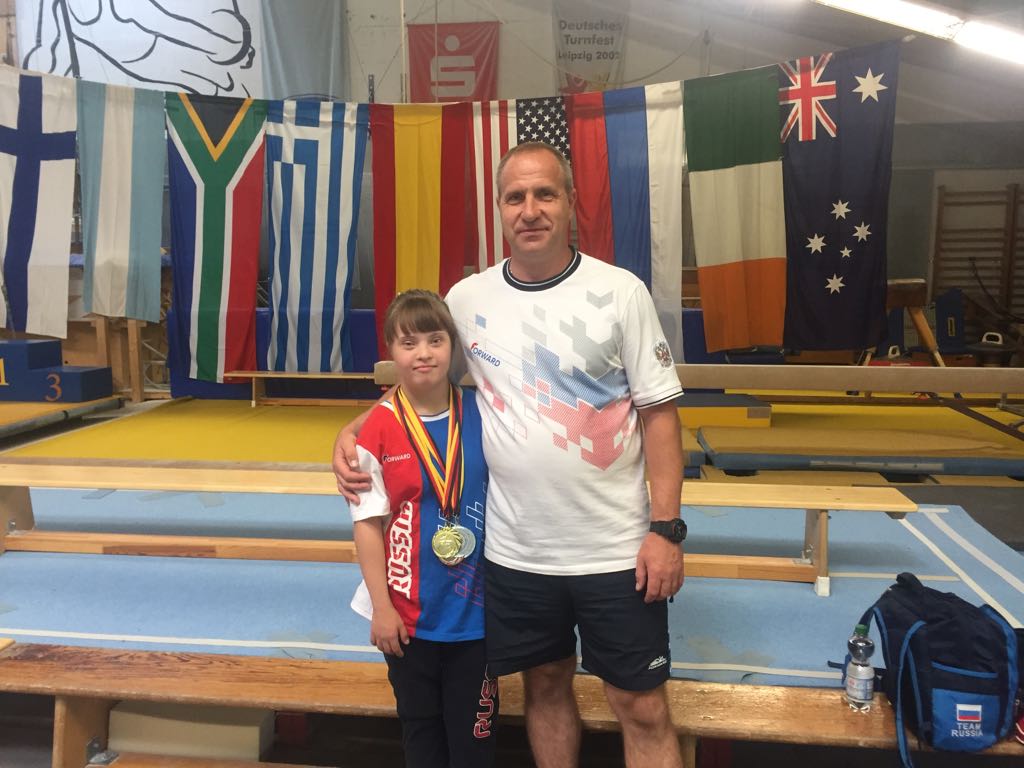Arina Kutepova, Russia’s first elite gymnast with Down syndrome, recently came back from the DSIGO Gymnastics World Championships with a haul of medals – a gold on beam, silvers on bars and floor and a bronze on vault.
DSIGO Gymnastics World Championships are a competition for gymnasts with Down syndrome. This was only the third time the competition took place and it was the first senior Worlds for Kutepova, as she recently turned 18 (DSIGO – Down Syndrome International Gymnastics Organization – classifies gymnasts has different age requirements than FIG and only gymnasts aged 18 and older can compete as seniors).
Shannon Laffey from the United States won the all-around gold at this competition, with Alice Patterson from Great Britain in second place and Sara Angelica Diaz Gonzales from Mexico in third place. Kutepova had issues in bars and finished only in fourth place in the all-around.
The DSIGO competitions do not fall under the FIG umbrella but follow a modified FIG Code of Points. According to Trevor Low, a representative of DSIGO, in addition to the elements in the FIG code, there are five additional categories of elements (ranked by their difficulty) in the DS Code of Points but the use of the standard CoP elements is rewarded with an extra 0.5 in difficulty value. Mr. Low commented that DSIGO would like to collaborate with FIG in developing the sport: “It is our hope now that the FIG will acknowledge the work of DSIGO and allow us to benefit from the depth of expertise and experience that they have”.
While there are many established artistic gymnastics programs for people with intellectual disabilities around the world, with US and UK leading the way, this is not the case in Russia. Until last year, the sport was not in the register of official sports in Russia and as such received no support from the state and the Ministry of Sports. After Kutepova’s parents lobbying efforts, last year, it was finally included in the register which also allowed gymnasts with intellectual disabilities to get the coveted “Master of Sports” qualification.
The example of Arina Kutepova is helping to promote disability gymnastics in Russia as she is making the local news every time she wins medals. Margarita Pavlova, the Commissioner for Human Rights in the Chelyabinsk region, said to the local media that Kutepova’s international success led to opening new disability gymnastics programs in several Russian cities.
While Arina used to be the only disabled gymnast at her gym and trained alongside the regular kids, she recently became a coach, helping out with a program for disabled gymnasts. Her mother, Natalia Kutepova, said that Arina’s example leads the way for others and recently another athlete with an intellectual disability was hired as a coach at a sports school in the Moscow region. Two coaches might not seem like much but currently, most people with Down syndrome in Russia are unemployed with no prospects of finding a job in any near future.
Photo: Natalia Kutepova



